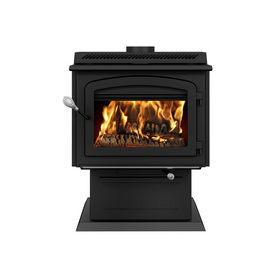
The Challenge and Opportunities of Minimalism for the Home
Last Updated: Mar 17, 2025One of the most defining characteristics of our modern-day civilization is that we live to consume. While much has been written about the negative psychological and ecological effects of constructing a society where our principal identities are consumers, very few of us have any real or profound desire to change that fundamental identity.
While we might hate the “clutteredness” of our lives and the pressure to purchase the newest technological gadget for our homes, most of us willingly accept the burdens and inconveniences of the consumer-focused lifestyle as a necessary evil that accompanies the comforts, luxuries, and securities that come with affluence. While global climate change certainly worries most of us, very few of us would willingly do without the fossil-fuel-powered central heat that allows us to comfortably walk around barefoot in our homes during minus-20 degree weather in the dead of winter.
Our identities as consumers are so deeply ingrained that many of us have no idea how to provide for ourselves anymore. We have willingly entrusted the meeting of our most basic needs to the globalized monetary economy. The agrarian poet, writer, and farmer once said in a speech, “we must achieve the character and acquire the skills to live much poorer than we do.”
Far from being a defense of paucity of material deficiency, Berry was stating the fact that the only way to free ourselves from the psychological pressure of unending consumerism while also finding practical ways to limit the damage we do to the planet is through learning to provide for ourselves.
While many people define minimalism as a negation of certain material things, a voluntary “doing without” many of the supposed necessities that our consumer-oriented civilization would have us to believe to be an absolute requirement, it is also possible to outline minimalist ideology in a more positive and affirming light.
Instead of just doing without certain consumer items, minimalism is really about learning to discern what is truly important in life. Minimalism urges us to think deeply about what we genuinely value and conscientiously make lifestyle choices based on those values.
One of the most lamentable aspects of consumerism is that it often leads to superficiality. We spend our time accumulating money to purchase the latest frivolity that hits the market. During the 50 years of our adult, working-age lives, most of us will spend at least 35% of our time at work to be able to pay the bills and attempt to purchase our way into happiness.
By thoughtfully considering what we need in life, we free up time, energy, and resources (monetary included) to invest in other ventures outside consumer impulses. By unburdening our lives from the constant drive and stimulus to consume, we also decrease the negative environmental effects associated with our consumer-oriented lifestyles. Simply put, living with less “stuff” means less natural resources consumed and less waste produced.
When it comes to the homes that we live in, minimalism also plays an important role. The construction and housing industry are responsible for significant environmental damage. Over 40% of all energy use in the world comes from buildings, and close to 40% of all the raw materials used by our global economy are destined for the construction industry.
Despite these troubling statistics, most people, even those of us who consider ourselves to be concerned about the environment and the ecological health of the natural world, do very little to change the way our homes affect the world around us.
Instead of building a 2,500 square foot monster home for your family of three, minimalism would encourage us to question whether or not we need that much space to live happily. In a more positive light, minimalism would challenge us to find ways to do more with less and learn to use our creativity to live well in smaller spaces that use less energy and raw materials while also burdening us with much less debt.
For those who are physically capable, minimalism might also challenge us to build our own homes or take responsibility for a needed renovation to make our homes more energy-efficient or sustainable. For those of us not able to personally engage in designing and building our own homes, several architecture and construction companies specialize in creating affordable and sustainable homes.
Adopting a minimalist mindset should serve as a catalyst to help us, as Berry says, to find the character and develop the skills that are necessary to provide for ourselves and develop a sense of autonomy over our own lives that will allow us to find ways to respect the natural limits of the world and live more sustainably.
Table of Contents
Tobias Roberts
Tobias runs an agroecology farm and a natural building collective in the mountains of El Salvador. He specializes in earthen construction methods and uses permaculture design methods to integrate structures into the sustainability of the landscape.










